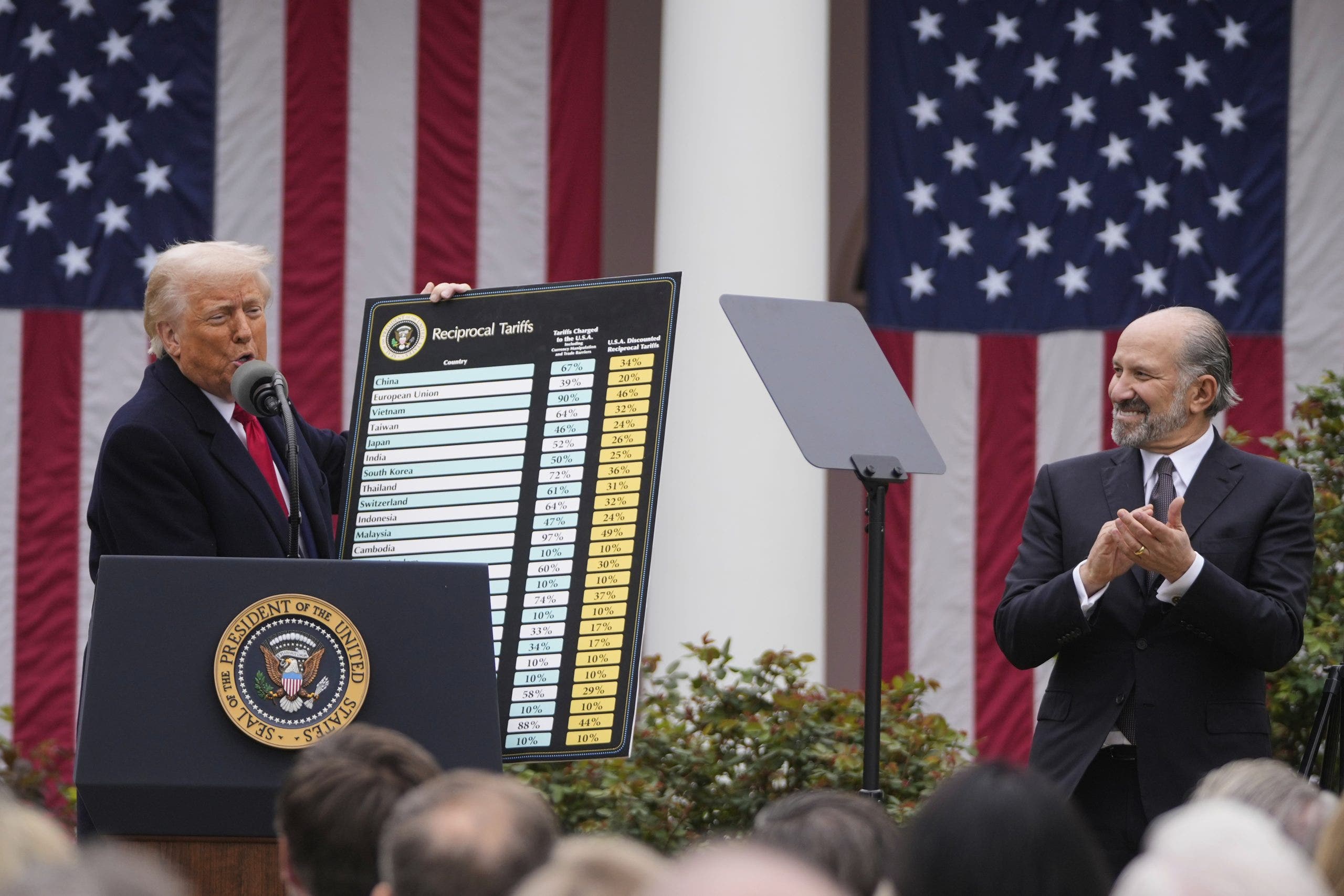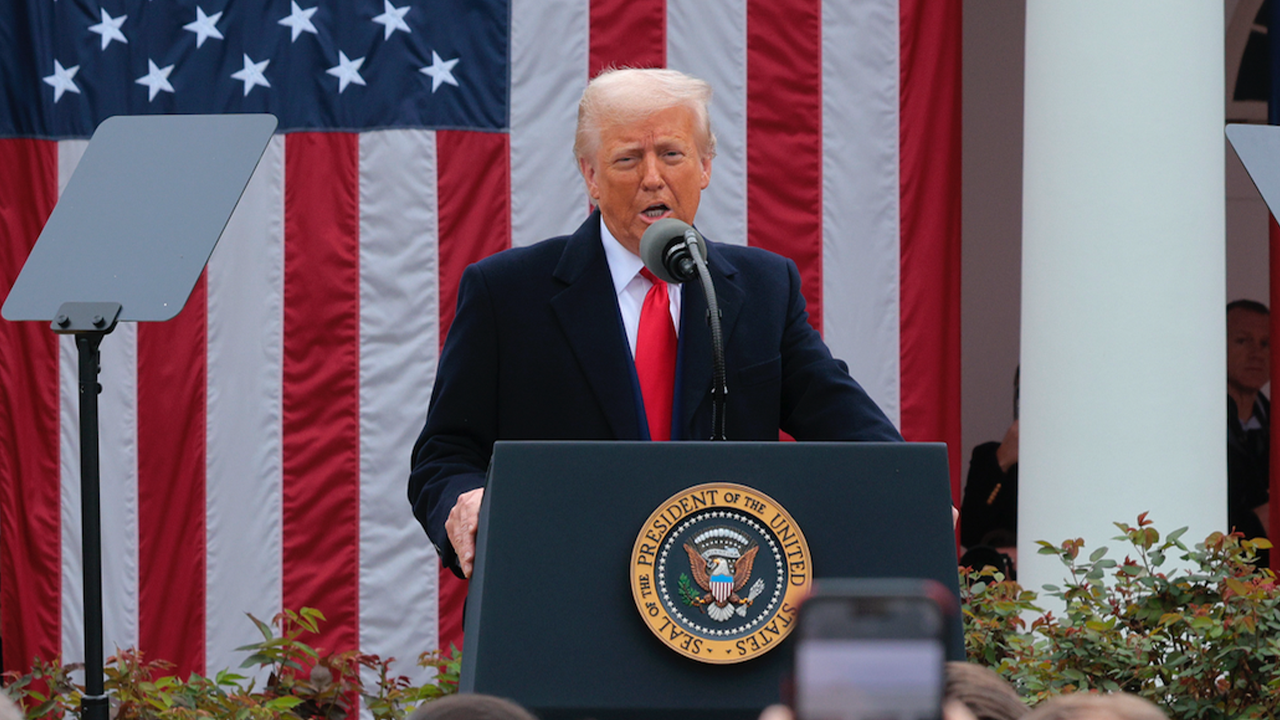‘Long live the student intifada!’ Momodou Taal says in statement announcing exit from US
A Cornell University graduate student who had his visa revoked after pledging his allegiance to the “armed resistance in Palestine” has self-deported after a federal court twice rejected his request for a protection order.
Momodou Taal, a Gambian and British dual national, announced Tuesday night that he “took the decision to leave the United States, free and with my head held high.” His statement came hours after he dropped his lawsuit against the Trump administration, in which he claimed that the president’s executive order calling for the deportation of foreign Hamasniks had a “chilling” effect on his freedom of speech and had “deprived” other students of their right to hear his “ideas and suggestions.”
Taal’s announcement is the latest legal blow for critics of Trump’s visa revocation policies and comes after a federal judge rejected Taal’s two requests to stop the government from deporting him.
Taal, a leader in Cornell’s pro-Hamas demonstrations who was barred from the campus before his self-deportation, has repeatedly advocated for the destruction of the United States and for terrorism against Israel.
In his Monday statement, however, he framed his actions as peaceful protests meant to “speak out against genocide” and claimed the Trump administration revoked his visa in retaliation after he filed his lawsuit. The Trump administration revoked Taal’s visa on March 14, the day before Taal filed the lawsuit.
“Trump did not want me to have my day in court and sent ICE agents to my home and revoked my visa,” said Taal. “It is surreal that we live in a world where you get into trouble for saying killing babies is wrong.” He ended the statement, “Long live the student intifada!”
He also complained that society was too concerned with the “safety of Zionist students,” who he accused of “collaborat[ing] with law enforcement to target students of color.”
“For months on end, we’ve had to listen to—ad nauseam—concerns regarding the safety of Zionist students, when they are the same students who dox, monitor and collaborate with law enforcement to target students of color.”
Taal’s self-deportation announcement came hours after the U.S. government submitted a court filing defending its decision to revoke his visa. And while critics of Trump’s deportation order have said it infringes on free speech rights, the administration said it based its decision on Taal’s conduct at Cornell, where the graduate student was suspended multiple times and banned from campus for disorderly conduct.
In the Monday court filing, the Trump administration quoted from an agreement that Taal signed with Cornell in January, in which he admitted to violating the student code of conduct by engaging in “disorderly conduct,” “[u]nreasonably loud or belligerent behavior,” and by “disrupt[ing] University [a]ctivities” by “[s]ubstantially obstructing the lawful use of … University premises” or by “making unauthorized entry upon or use of a University property or facility or by unlawfully remaining.”
While leading an anti-Israel campus demonstration last year, meanwhile, Taal called on his fellow student protesters to take their “cue from the armed resistance in Palestine.”
“We are in solidarity with the armed resistance in Palestine from the river to the sea,” he said.
Taal made a similar statement hours after the Oct. 7 attacks, writing, “The dialect demands: That wherever you have oppression, you will find those who are fighting against it. Glory to the resistance!”
Taal posted similar statements online in 2022 as he applied for his student visa. In one post, he wrote, “The end of the US empire in our lifetime in sha Allah.” Months later, he celebrated receiving his student visa, writing, “Student Visa issued. We going to America baby! Alhamdulillah!” Shortly thereafter, he tweeted, “My hatred of the US empire knows no bound. Wallahi.”
Taal has continued to post anti-American comments from his perch at Cornell. Last summer, he said he would support any group that sought the destruction of the United States.
“When the enemy is US imperialism, then absolutely anyone the US calls an enemy is my friend,” he posted in July. “My hatred for US imperialism and the global system it reproduces knows no bounds. At this point; any movement, nation, people who are working to decrease the impact and effects of US imperialism on the world has my support,” he wrote one month prior.
Read the full article here







